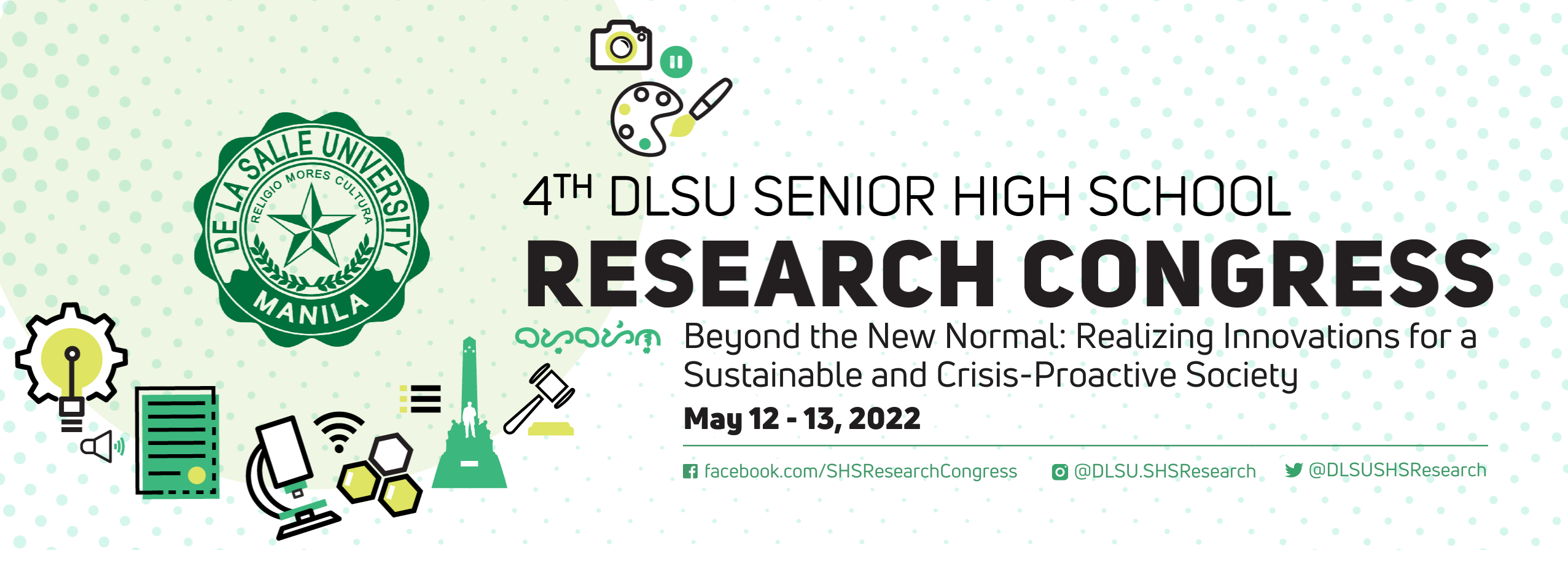Document Types
Paper Presentation
Research Theme (for Paper Presentation and Poster Presentation submissions only)
Sustainability, Environment, and Energy (SEE)
Research Advisor (Last Name, First Name, Middle Initial)
Chona Camille Vince Cruz-Abeledo
Start Date
12-5-2022 1:00 PM
End Date
12-5-2022 3:00 PM
Abstract/Executive Summary
With its convenience and practicality, e-commerce and online delivery services saw an increase during the COVID-19 pandemic. Due to the ever increasing plastic waste produced in combination with poor waste management, these cause an overflow of plastic waste generation, polluting ecosystems and affecting the planet as a whole. Inadvertently, this increase also poses a risk to the generation of microplastics in ecosystems as macroplastic debris breaks down. This study investigated the plastic waste generation of Filipino households and estimated microplastic yields to determine patterns and their causes, as well as aiding future research as reference for the generation of plastic waste by Filipino households. The study was conducted over a 4-week period from late November to early December 2020 using a community science methodology that involved 30 households. During the data collection period, the study found an upward trend in weekly plastic waste over the four weeks as the holiday season approached, with the most common types being packaging and food plastics. Extrapolating data from Du et al. (2020), the estimated microplastic yield of each household is approximately 311.83 pieces per week dependent on the plastic type. A more sustainable delivery packaging model is recommended in minimizing plastic waste generated from e-commerce activities that may pose a harm in the long run, if not mitigated.
Keywords
plastic; pandemic; macroplastic; microplastic; pollution
Plastic Pandemic: A Prospective Study on Household Macro and Microplastics from E-Commerce During the COVID-19 Pandemic
With its convenience and practicality, e-commerce and online delivery services saw an increase during the COVID-19 pandemic. Due to the ever increasing plastic waste produced in combination with poor waste management, these cause an overflow of plastic waste generation, polluting ecosystems and affecting the planet as a whole. Inadvertently, this increase also poses a risk to the generation of microplastics in ecosystems as macroplastic debris breaks down. This study investigated the plastic waste generation of Filipino households and estimated microplastic yields to determine patterns and their causes, as well as aiding future research as reference for the generation of plastic waste by Filipino households. The study was conducted over a 4-week period from late November to early December 2020 using a community science methodology that involved 30 households. During the data collection period, the study found an upward trend in weekly plastic waste over the four weeks as the holiday season approached, with the most common types being packaging and food plastics. Extrapolating data from Du et al. (2020), the estimated microplastic yield of each household is approximately 311.83 pieces per week dependent on the plastic type. A more sustainable delivery packaging model is recommended in minimizing plastic waste generated from e-commerce activities that may pose a harm in the long run, if not mitigated.


